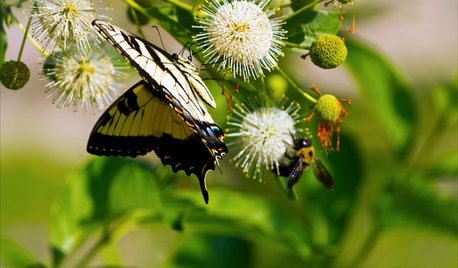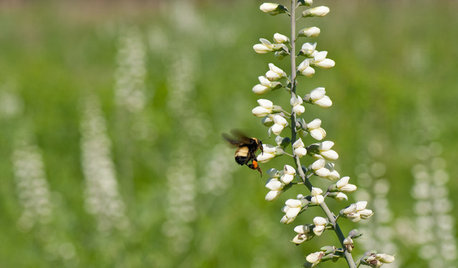How much to plant?
jpc57
16 years ago
Related Stories

GARDENING GUIDESInvite Mining Bees to Your Garden by Planting Their Favorite Plants
Look for mining bees (Andrena) pollinating woodland wildflowers in U.S. gardens this spring
Full Story
NATIVE PLANTSPlant These Fall-Flowering Natives in Early Summer for Pollinator Love
These 3 groups of plants will support masses of beneficial insects come autumn
Full Story
GARDENING GUIDESGreat Design Plant: Helianthus Maximiliani Attracts Beneficial Insects
Maximilian sunflower’s striking yellow flowers light up the fall landscape and attract pollinators and beneficial insects at a crucial time
Full Story
NATIVE PLANTSGreat Design Plant: Color Outside the Lines With Bluebell Bellflower
Plant this Campanula on pathway and patio edges for shots of bright blue from May through September
Full Story
GARDENING GUIDESGreat Design Plant: Slipper Plant
Unthirsty succulent looks great all year and offers an unexpected surprise in fall
Full Story
GARDENING GUIDESGreat Design Plant: Cephalanthus Occidentalis
Buttonbush is an adaptable woody shrub with delightful pincushion flowers
Full Story
GARDENING GUIDESGreat Design Plant: Paddle Plant
If you're looking for awesomely strange foliage and low care requirements, this succulent is right up your alley
Full Story
GARDENING GUIDESGreat Design Plant: Please Bumblebees by Planting Baptisia Lactea
Plant wild white indigo in central and southeastern U.S. gardens for its large white flower heads and early-spring interest
Full Story
HOUSEPLANTS8 Essentials for Healthy Indoor Plants
Houseplants add so much to our homes — and can thrive when grown in the right conditions. Keep these tips in mind
Full Story
GROUND COVERSNative Alternatives to English Ivy, Japanese Pachysandra and Periwinkle
These shade-loving ground covers are good for the environment and say something about where you are
Full StorySponsored






nancyofnc
sundacks
Related Professionals
Carson Landscape Architects & Landscape Designers · Manorville Landscape Architects & Landscape Designers · Zion Landscape Architects & Landscape Designers · Pelham Landscape Contractors · Alpharetta Landscape Contractors · Lorain Landscape Contractors · Melrose Park Landscape Contractors · Milford Mill Landscape Contractors · Ringwood Landscape Contractors · Suitland Landscape Contractors · Wallingford Landscape Contractors · West Haverstraw Landscape Contractors · Hawaiian Gardens Landscape Contractors · Titusville Solar Energy Systems · West Jordan Solar Energy Systemsbarrie2m_(6a, central PA)
farmerellaplace
sandra_christie
tulsacityfarmer